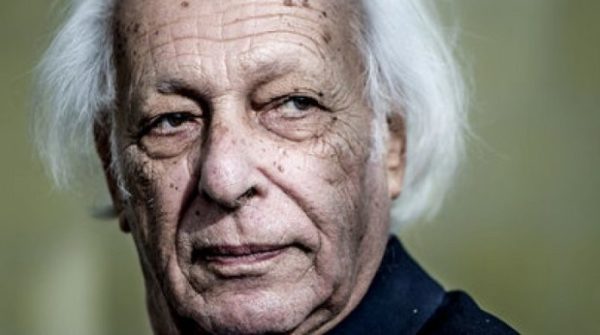Professor Samir Amin, director of the Third World Forum, died Sunday, August 12, 2018 in Paris at the age of 87 years. A loss for the world of economy and the progressive circles of North and South. “A Baobab fell,” writes Professor Saliou Sy of the Dakar School in tribute to the Franco-Egyptian economist who had resided in Senegal for more than 40 years.
Associate Professor of Economics, Samir Amin, born in Cairo in 1931, upset the world of development economics with his huge book entitled “Unequal Development. Essay on the social formations of peripheral capitalism, Paris, Ed. “Midnight”, published in 1973 and analyzing the modes of production tributary to the periphery and the capitalist mode of production in the center.
In Samir Amin’s vision, the periphery is blocked in its development by the system of unequal exchange. To get out of this infernal circle, the economies of the periphery must initiate a self-centered development process.
If the Argentine Raul Prebsch, founder of the school the school of Desarrollismo, gave a fundamental diagnosis of the evolution of the products and the manufactured products in time of recession (the last cities increasing faster), Samir Amin he chiseled the theory of development by departing from the Marxist-Leninism fashionable in the 70s and drawing his reasoning from history.
Self-centered development theory
The theory of the “law of unequal development” distinguishes two great stages of history, the pre-capitalist phase and the capitalist phase. The development of the center would come historically from violent forms of accumulation (rapists, slavery, colonization, etc.) then, in the modern era, technical progress and capital returns. The catching up of the center by the periphery can only be done through the creation of other centers.
An African experience
From 1957 to 1960, he worked in the Egyptian Economic Development Administration and then advised the Government of Mali from 1960 to 1963, before being appointed professor at the Universities of Poitiers, Dakar and Vincennes. He was from 1970, director of the African Institute of Economic Development and Planning of Dakar, then from June 1980, director of research on strategies for the future of Africa.
Bliography of Samir Amin (Source: the editions of Minuit)
Bibliography (excerpt):
* Nasserite Egypt, under the pseudonym Hassan Riad (Midnight, 1964).
* Three African development experiences. Mali, Guinea and Ghana (Presses universitaires de France, 1965).
* Magreb economy. Volume I: Colonization and decolonization; Volume II: The Future Outlook (Midnight, 1966, 2 vols.).
* The development of capitalism in Ivory Coast (Midnight, 1967).
* The Senegalese Business World (Midnight, 1969).
* The modern Magreb (Midnight, 1970).
* West Africa blocked. Political economy of colonization. 1880-1970 (Midnight, 1971).
* Economic History of Congo, 1880-1968, with Catherine Coquery-Vidrovitch (Anthropos, 1970).
* Accumulation on a global scale. Criticism of the theory of underdevelopment (Black African Basic Institute, Dakar / Anthropos, 1970, new edition, 1988).
* Unequal development. Essay on the social formations of peripheral capitalism (Minuit, 1973).
* Unequal Exchange and the Law of Value (Black African Basic Institute, Dakar / Anthropos, 1973, revised and revised, 1988).
* Collection of studies on economic and social development, with J.C. Saigal, Peter A. Cornelisse (NEAS, 1973).
* The Peasant Question and Capitalism, with Kostas Vergopoulos (IDEP / Anthropos, 1974).
* The Crisis of Imperialism, with Alexandre Faire, Mahmoud Hussein and Gustave Massiah (Midnight, 1975).
* Imperialism and unequal development (Midnight, 1976).
* The Arab Nation. Nationalism and class struggle (Midnight, 1976).
* The Law of Value and Historical Materialism (Midnight, 1977).
* Class and nation. In the history and the contemporary crisis (Midnight, 1979).
* Contemporary Arab Economy (Midnight, 1980).
* The Future of Maoism (Midnight, 1981).
* Accumulation, dependence and under development. Precapitalist societies and capitalism, with André Gunder-Franck (Anthropos, 1981).
* The Industrial Future of Africa, with Alexandre Faire, Daniel Malkin (L’Harmattan, 1981).
* Iraq and Syria. From the national project to transnationalization, 1960-1980 (Midnight, 1982).
* The disconnection. To leave the global system (La Découverte, 1986).
* The Mediterranean in the world. The stakes of transnationalization, with Yachir Faisal (La Découverte, 1988).
* Eurocentrism. Criticism of an ideology (Anthropos, 1988).
* Imperialism and underdevelopment in Africa (Anthropos, 1988).
* The Bankruptcy of Development in Africa and the Third World. A political analysis (L’Harmattan, 1989).
* The Empire of chaos. The new capitalist globalization (L’Harmattan, 1991).
* Strategic Issues in the Mediterranean (L’Harmattan, 1992).
* The Ethnic to the assault of the nations. Yugoslavia, Ethiopia (L’Harmattan, 1992).
* Intellectual itinerary. Perspectives on the half-century, 1945-90 (L’Harmattan, 1993).
* Africa and Arab world, failure of international integration, with Hakim Ben Hammouda, Bernard Founou-Tchuigoua (L’Harmattan, 1995).
* Capitalist management of the crisis. The fiftieth anniversary of the Bretton Woods institutions (L’Harmattan, 1995).
* The Challenges of Globalization (L’Harmattan, 1996).
* Criticism of the time. The 150th anniversary of the Communist Manifesto (L’Harmattan, 1997).
* USA, the hegemonism of the United States and the erasure of the European project (L’Harmattan, 2000).
* Beyond senile capitalism. For a 21st century non-American (Presses universitaires de France, 2002).
* The Liberal Virus (Le Temps des cerises, 2003).
* The Arab world. Social issues, Mediterranean perspectives, with Ali El Kenz (L’Harmattan, 2003).
* For a multipolar world (Syllepse, 2005).
* Eurocentric crisis (Le Temps des cerises, 2005).



